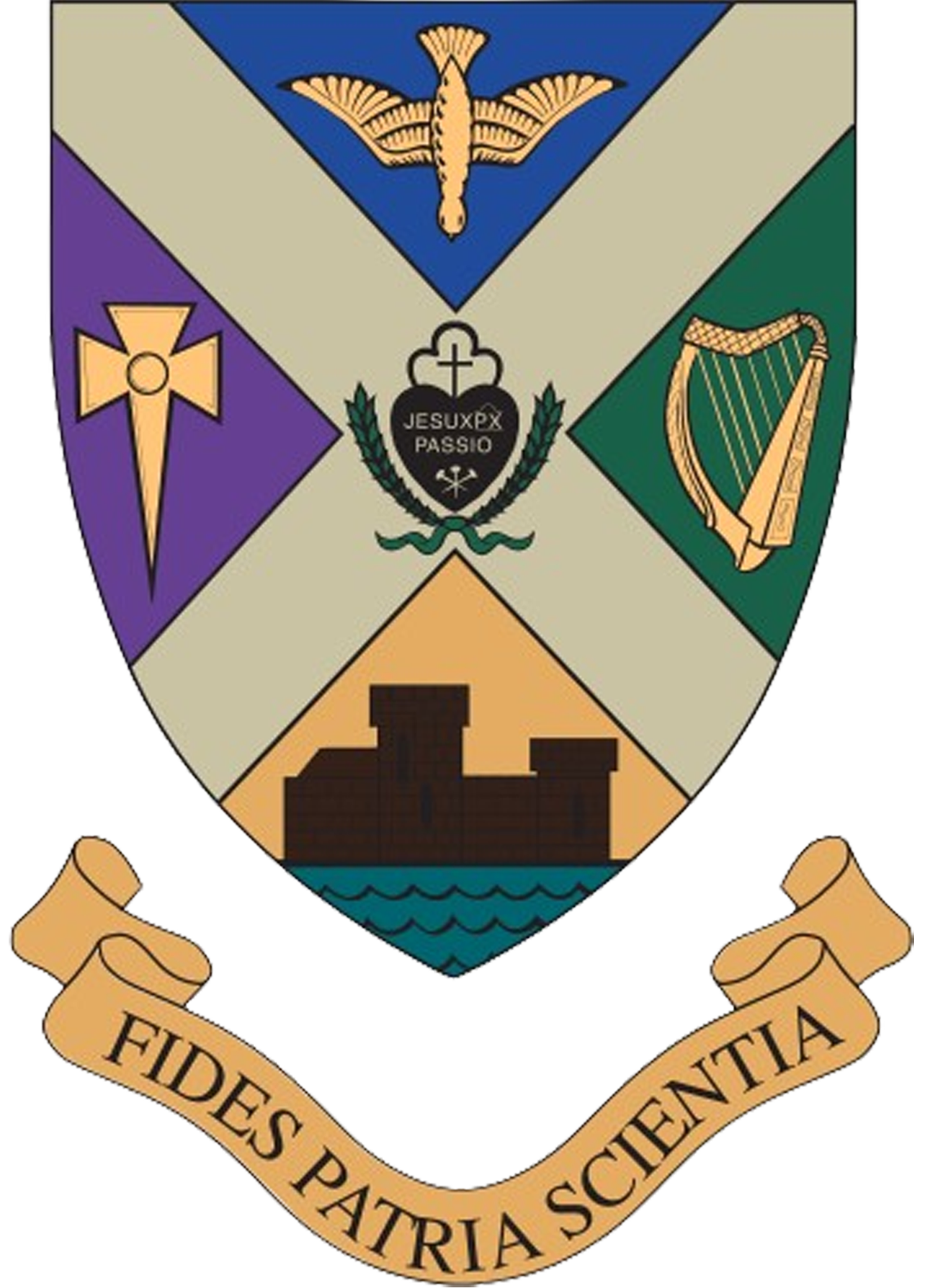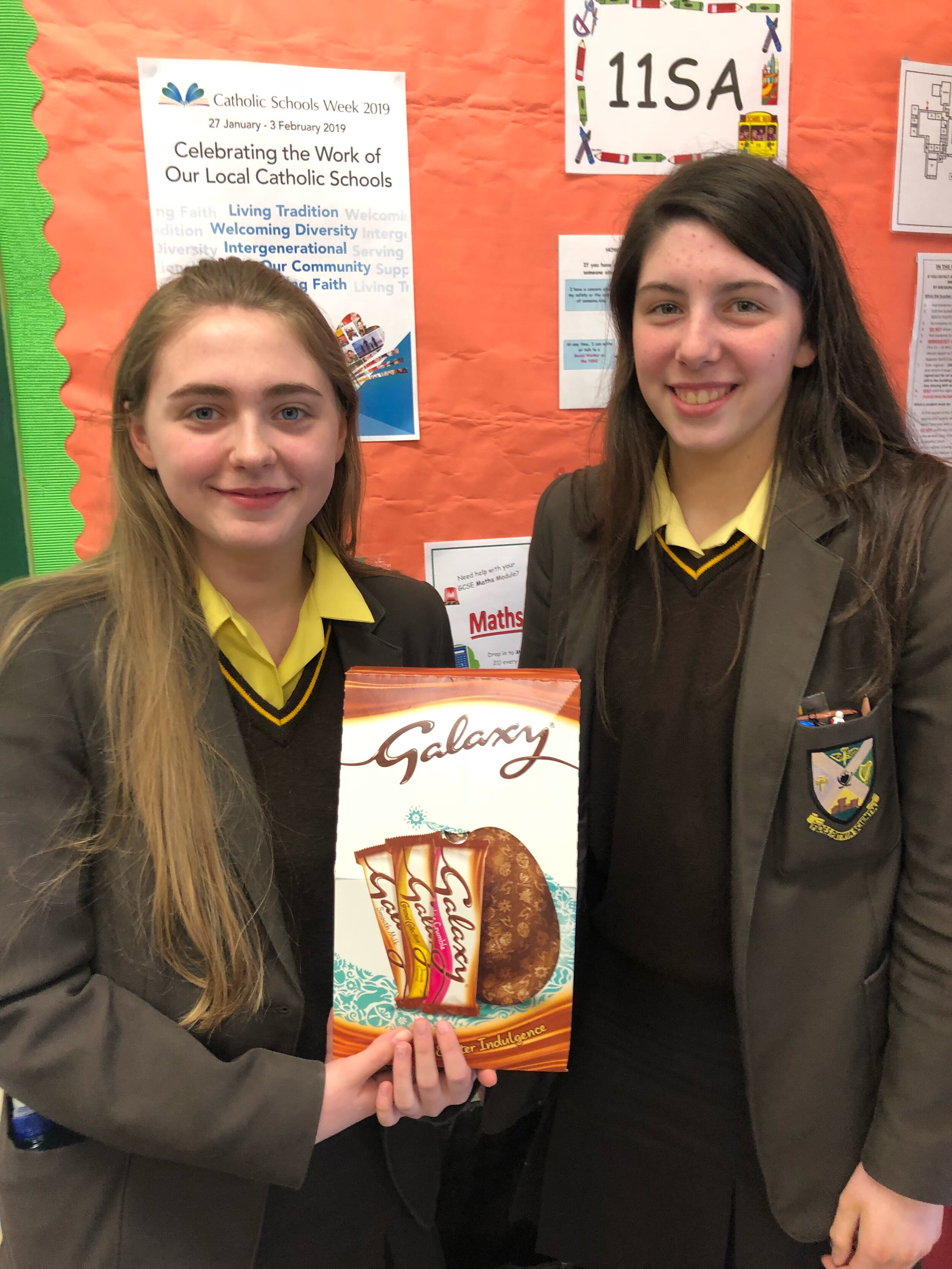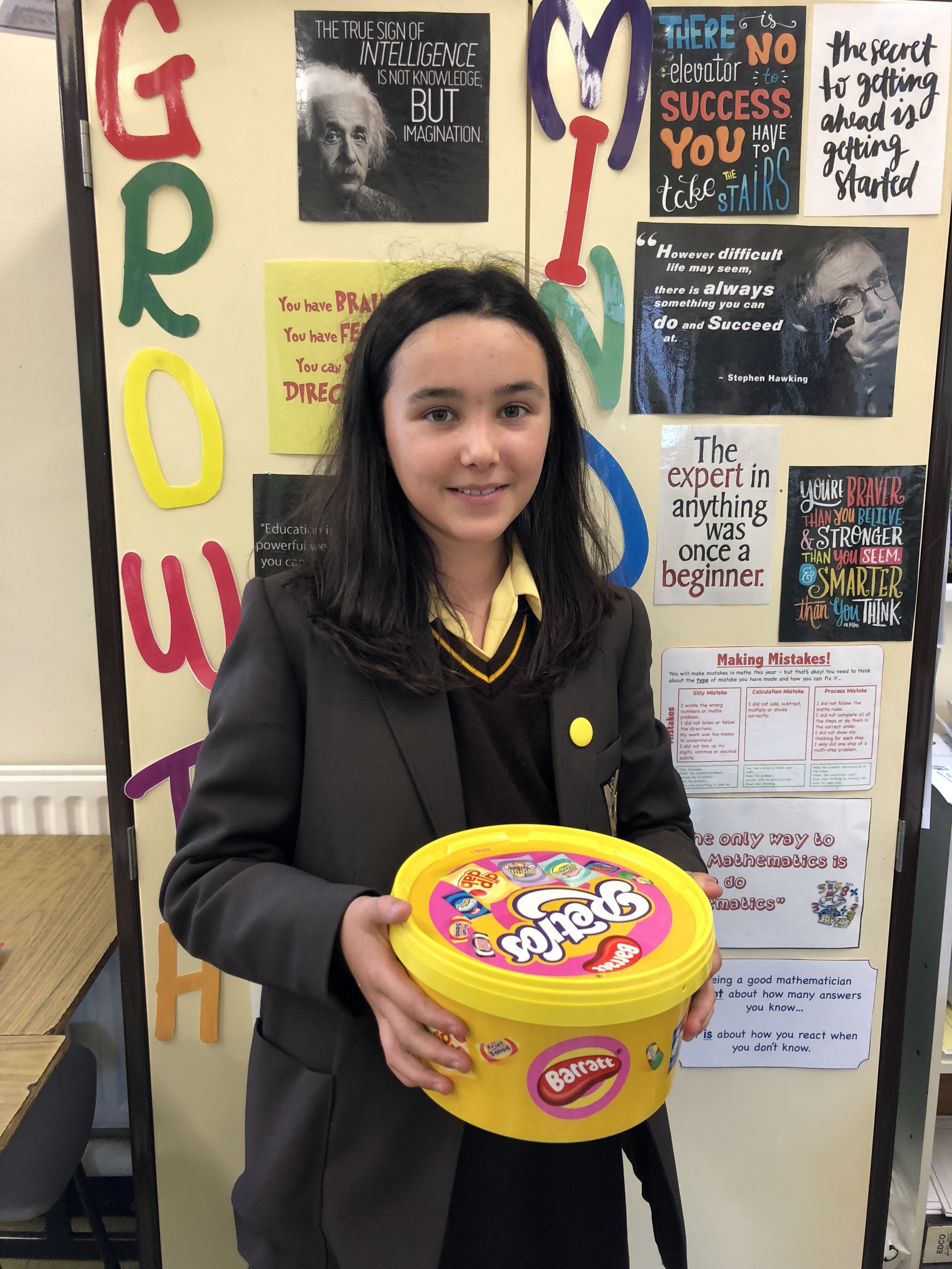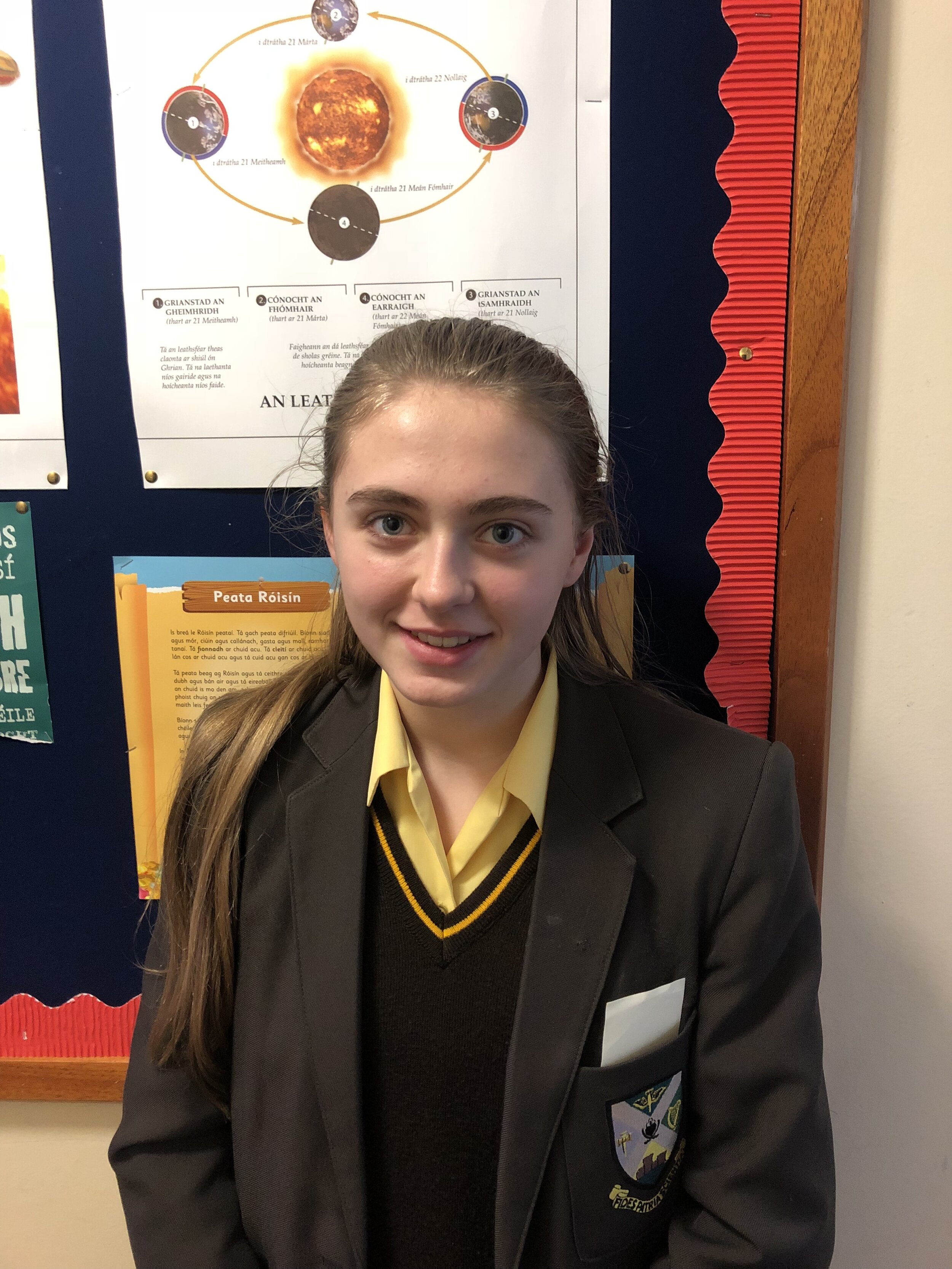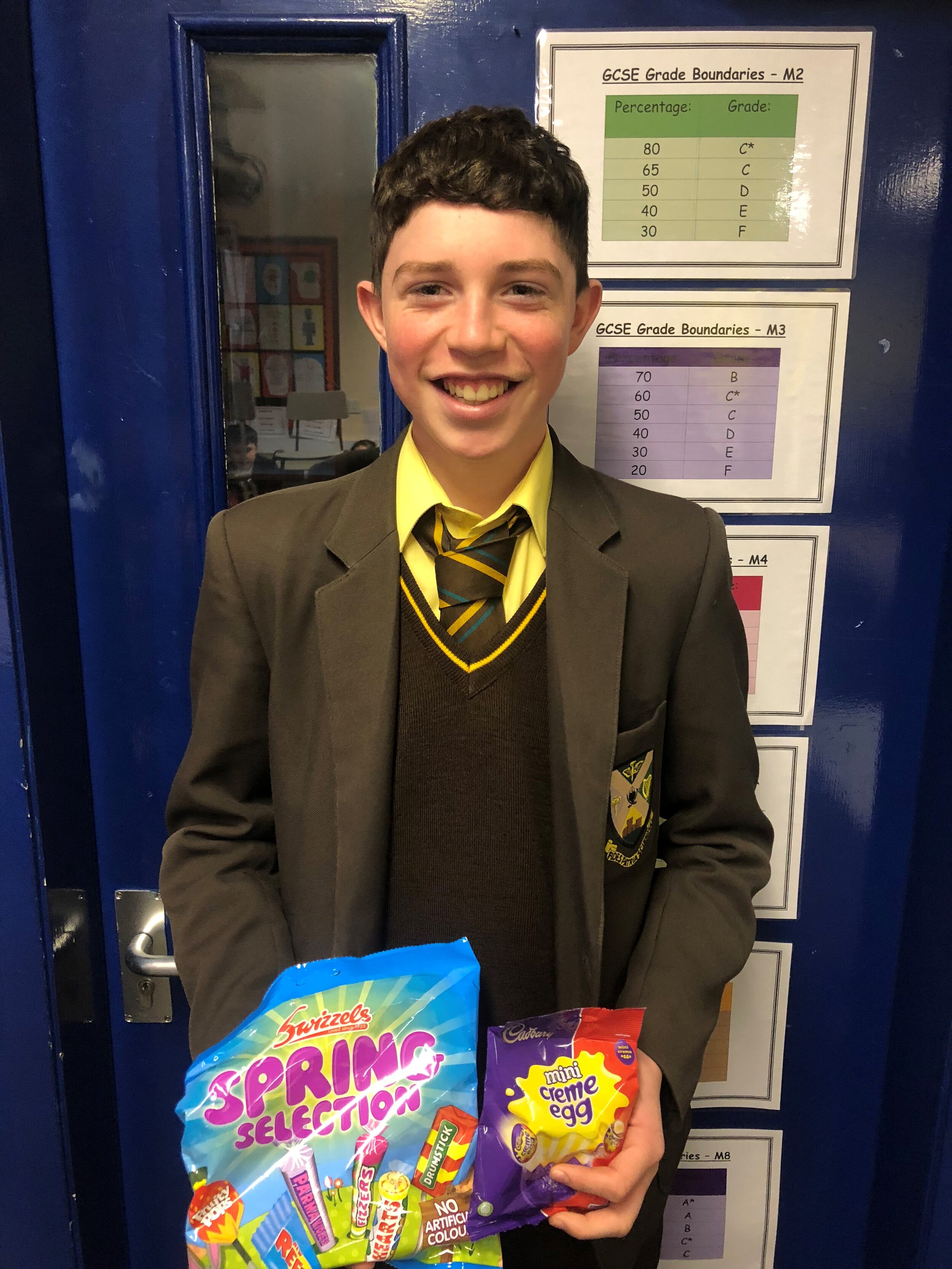Aims
“Promoting a positive can-do mindset which builds confidence and motivation in the learning of Mathematics”.
We aim to develop the application of mathematical concepts and to promote independent enquiry and an enjoyment of learning mathematics.
We use active and involving teaching approaches
We use effective questioning techniques to encourage thinking
We identify misconceptions as starting places for concept building
We are responsive to the needs of each pupil and allow additional time before moving on when required
We actively encourage reflection on learning
We create an ethos in the maths department of high standards of behaviour, work and presentation.
Staff
Ms C McWilliams (HOD)
Mrs S McFadden (Numeracy Co-ordinator)
Mr B Kelly (KS3 Co-ordinator)
Mrs M McKinley
Mrs A Fegan
Key Stage 3
Our schemes of work have been created in line with the requirements of the revised curriculum.
Pupils will cover the followingtopics each year:
Shape, Space and Measures 1 (September/October)
Number (November/December)
Algebra (January/February)
Handling Data (March/April)
Shape, Space & Measures 2 (May/June)
Our schemes aim to provide opportunities for pupils to develop:
Knowledge and understanding of personal finance issues
The application of mathematical skills to real life and work situations
The creative use of technology to enhance mathematical understanding
Creative thinking in their approach to solving mathematical problems
Increasing competence in mental mathematics skills
Increasing competence in pencil and paper methods
Increasing confidence in the use of mathematical language and notation
Practical skills using technology
GCSE
GCSE Maths (CCEA)
This specification aims to encourage students to:
Develop knowledge, skills and understanding of mathematical methods and concepts
Acquire and use problem-solving strategies
Select and apply mathematical techniques and methods in mathematical, everyday and real-world situations;
Reason mathematically, make deductions and inferences, and draw conclusions;
Interpret and communicate mathematical information in a variety of forms appropriate to the information and context; and
Acquire a foundation appropriate to a further study of mathematics and other disciplines.
This is a unitised specification. This course offers opportunities to build on the skills and capabilities developed through the delivery of the Key Stage 3 curriculum in Northern Ireland.
This course allows students the opportunity to develop and apply skills to real-life contexts. These skills are embedded within this specification.
GCSE Further Maths
This specification aims to encourage students to:
Develop further their mathematical knowledge, skills and understanding;
Select and apply mathematical techniques and methods in mathematical, everyday and real-world situations;
Reason mathematically, interpret and communicate mathematical information, make deductions and inferences, and draw conclusions;
Extend the base in mathematics from which they can progress to: - higher studies in mathematics; and/or - studies such as science, geography, technology or business which contain a significant requirement in mathematics beyond Higher Tier GCSE Mathematics;
Design and develop mathematical models that allow them to use problem solving strategies and apply a broader range of mathematics to a variety of situations.
Post-16
GCE (A Level) Mathematics aims to develop and strengthen a range of knowledge and skills. Among these, the course aims to help students:
Develop their understanding of mathematics and mathematical processes;
Develop their reasoning skills and their ability to recognise incorrect reasoning;
Extend their mathematical skills and techniques for use in more difficult, unstructured problems;
Understand the coherence and progression in mathematics and how different areas of mathematics are connected; and
Become aware of the relevance of mathematics to other fields of study, the world of work and society in general.
The specification allows pupils to be awarded an AS (2 modules) or an A level (4 Modules) in Mathematics (awarded by CCEA)
The specification
Seeks to consolidate and extend the knowledge, skills and understanding developed in KS4.
Provides a suitable foundation for the study of Mathematics and other subjects in further and higher education and for a range of careers.
Enables schools to provide a coherent, satisfying and worthwhile course of study for those pupils who do not progress to further study of Mathematics.
It is recommended that pupils who choose AS/A level Maths will have achieved a Grade B or higher at GCSE level. It is also recommended that pupils will have gained their grade by completing M4 and M8 (or equivalent- higher level) at GCSE. Even though it is not necessary, it would be advantageous that pupils have completed the GCSE ‘Further Maths’ course.
Extracurricular
Maths Puzzle Club Organiser: Miss McLarnon)
In CPC, we aim to encourage a positive attitude towards Mathematics by encouraging pupils to get involved in our KS3 Maths Puzzle Club. Our weekly Maths challenge stimulates mathematical curiosity, promotes cross-curricular thinking and the holistic development of pupils. We strive to inspire thinking, challenge and collaboration.
We believe that pupils should be given the opportunity to study maths beyond the classroom and allow pupils to see maths as an integral part of their lives. Taking part in these challenges helps to develop a healthy interest in mathematics as a source of interest and achievement whilst making it fun!
Here are some photos of our recent Puzzle Club Winners!
